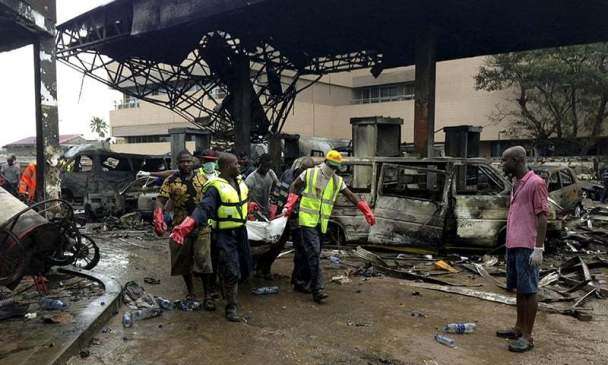Akosua Ogyiri, a survivor of the June 3 disaster, has called on Ghanaians to embrace responsibility as the true motivation for change—rather than waiting for tragedy to spark action—as the nation marks 10 years since the devastating floods and fire in Accra.
On the night of June 3, 2015, torrential rains caused widespread flooding across Accra, forcing hundreds to seek shelter, including at the GOIL filling station near Kwame Nkrumah Circle.
The situation turned catastrophic when fuel leaked into the floodwaters and ignited, causing a massive explosion that claimed many lives and left families shattered.
Speaking on Joy FM’s Super Morning Show, Akosua reflected on the painful lessons from that night and urged the nation to shift its mindset about disaster prevention.
“I believe that our mission to do the right thing often comes only from the pain of disaster. People died, properties were lost, and only then are we ignited to act,” she said. “But once the disaster subsides, everyone goes back to what they used to do — which is not fixing the problem.”
Akosua stressed the importance of acting out of a sense of duty, not just in reaction to tragedy.
“I think the spark to do the right thing should come from a sense of duty and a deep understanding of the responsibilities placed on us. Whether you are a citizen or not, you must do your part — don’t dump refuse anywhere, don’t block gutters. Just do it.”
She cautioned against waiting for disaster to ignite action. “Don’t wait for disaster to strike before you do what you’re supposed to be doing every day. Be a good citizen.”
Reflecting on the nation’s response, Akosua expressed disappointment that ten years after the tragedy, there is still no clear policy framework to prevent similar disasters.
“I was expecting that, after June 3, there would be clear policies — actions that everyone could point to and say, ‘Because of what happened on June 3, as a nation, we agreed to do this and that to protect lives.’”
The survivor shared how close she came to tragedy herself.
“Speaking now, ten years later, I realize how close I was to becoming another victim. If I had left earlier that night, I could have been swept away in the floodwaters. Only God knows what might have happened,” she said.
Akosua concluded with a powerful call to action: “What we must take from this is that the true ignition to do the right thing must come from a deep sense of responsibility and duty — not just from disaster, but from the commitment to prevent it.”



